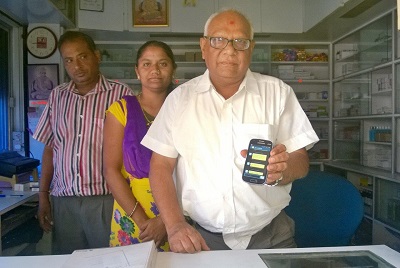
In India, around 70% of health care services are offered by the private sector. TB is no exception. More TB patients are treated in private sector than in the public sector.
There is wide acceptance that the private sector is part of the solution, even if it is challenging. This is also well articulated in the National Health Policy 2017. What confounds this challenge is the sheer magnitude of the numbers.
With TB incidence of 2.8 million/year, India has at least 27% of the global burden. Around 423 000 TB deaths every year account for 34% of global TB deaths.
India notified 1.9 million TB cases in 2016 of which, 1.6 million were from public sector and 0.3 million from private sector. A staggering one million TB cases are missing from notification, most of them being diagnosed and treated in private sector. That’s what makes the engagement with the private sector so very vital.
The large number of patients in private sector has raised concerns about: delayed diagnosis; suboptimal quality of care; incorrect diagnostic and treatment protocols; lack of systems for treatment adherence and patient support; and a high drop-out rate, thus raising the risk of drug resistance to first-line and/or second-line drugs.
India’s TB programme had recognised the need to engage private sector nearly two decades ago and the programme had initiated a number of Public-Private Mix (PPM) for TB Care and Control (PPM-TB) initiatives. Unfortunately, most of the learnings from these pilots were not scaled up.
WHO provided crucial support to India’s national TB programme to address quality of care of patients seeking treatment in the private sector. An important early step was the development of the ‘Standards for TB care in India’, which details the standards for diagnosis, treatment, public health actions and for social inclusion.
India banned the use of commercial serology for TB diagnosis in 2012 based on WHO’s negative policy recommendation on the poor quality diagnostics. This helped in the improvement of quality of diagnosis of TB in private sector. WHO also provided technical support to the government for the policy on mandatory notification and development of a case-based TB notification system ‘NIKSHAY’.
This development resulted in an increase in TB notification. In 2014, the number of notified cases increased by 29% compared to 2013; the number of notified cases in 2015 was 35% higher than the level of 2013. This upward trend has continued in 2016.
WHO partnered with the Central TB Division, State TB programmes and Bill Melinda Gates Foundation to pilot an innovative private sector engagement model for TB - the ‘Universal Access to TB Care’ projects in Patna in Bihar, Mumbai and Nagpur in Maharashtra, and Mehasana in Gujarat. The results - three to five times increase in TB case notifications at these pilot sites. This clearly demonstrates that it is possible to engage the private sector and improve the quality of care. WHO’s network of TB consultants played an active role in the implementation and support of these projects.
WHO also provided technical assistance to government for drug regulation, including placement of anti-TB drugs under schedule H-1, thereby preventing over the counter sale of anti-TB drugs without prescription; ICT-based innovations for real time treatment monitoring systems such as ‘99 DOTS’. These initiatives provided impetus and required tools for large-scale private sector engagement for TB care.
Based on an exhaustive evaluation by WHO, the key elements of successful models for private sector engagement, such as inter-phase agencies for facilitation of engagement; ICT tools; call centres for notification; and adherence monitoring have been incorporated in the new National Strategic Plan for TB Elimination (2017-25). The plan outlines clear pathways and activities to reach all TB patients, offer quality care and effectively engage with the private sector.
India has the expertise and necessary tools to effectively address the TB challenge. The WHO TB consultants network is well placed to support the scale-up and work with the private sector. Importantly, the programme also has the political momentum, with the Prime Minister personally invested in the issue, to make this happen.
